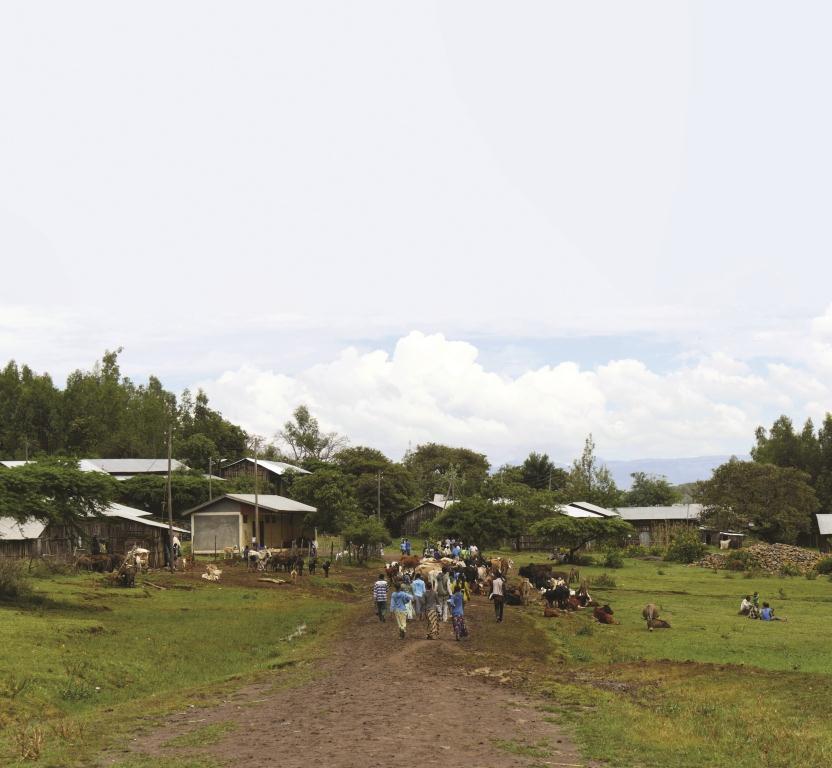The thatched roof houses and brown earth make Awra Amba, in the Amhara area of northern Ethiopia, look like any African village. But this is no ordinary village.
Here, young girls go to school, and walk short distances from their homes to get to them. Once home, they don’t have to trade their textbooks for chopping boards or babies. Household chores don’t await them. In Ethiopia, less than half the girls don’t go to primary school, but not so in Awra Amba – they all do.

Take Trissew Fente for instance. She chose not to marry before turning 19. Child marriages are common in the rest of Ethiopia, but not in Awra Amba. Fente opted to marry a man of her generation, and didn’t need to ask her family’s permission for it.
There were no celebrations, no dowry paid. The union was desacralized. Today, 30 years old, she is a mother of three and has opted not to get pregnant again.
Loading...
Fente uses oral contraception. Awra Amba supports family planning methods, and opposes the practice of Female Genital Mutilation (FGM). The villagers are well aware of the long-term health issues associated with it.
“We don’t inflict [excision] on our daughters because this creates many complications at birth,”
says Fente.
In Ethiopia, excision is punishable by law (since 2005). Yet, it’s believed that more than 70% of Ethiopian women continue to be victims of this practice – the country has one of the worst rates in the world.
“The people in Ethiopia think we’re crazy. Personally, I think their customs are terrible,” says Fente, as she works away on her wooden loom, traditionally an activity men engage in on the continent.
Petite she is, but performs this physically-arduous job just as skillfully as the men.
In Awra Amba, men and women get the same pay. The jobs are not distributed as per gender, but according to skill-sets. Here, women can be seen ploughing the land while men bathe the children and prepare injera, a pancake made out of a cereal grown locally.
“Doing a woman’s job does not change my sex, it changes my ignorance” is one of the mottos of this community created by Zumra Nuru, a 70-year-old illiterate peasant.
Known for his trademark green hat, Nuru founded this exclusive community at Awra Amba in 1972. Village lore has it that he decided to create his own utopia based on impressions from his childhood, when he witnessed the gross inequalities between his mother and father.

The beginnings were difficult, as Nuru sought to emancipate and free himself and his community of binding religious ties. Today, the community is made up of a hundred families who follow the unique egalitarian principles set by Numra for a self-sustaining society.
Hopefully, his model will encourage Ethiopia – and the rest of Africa – to come up with other more unique and emancipated concepts that benefit their communities – and the women.
Loading...
